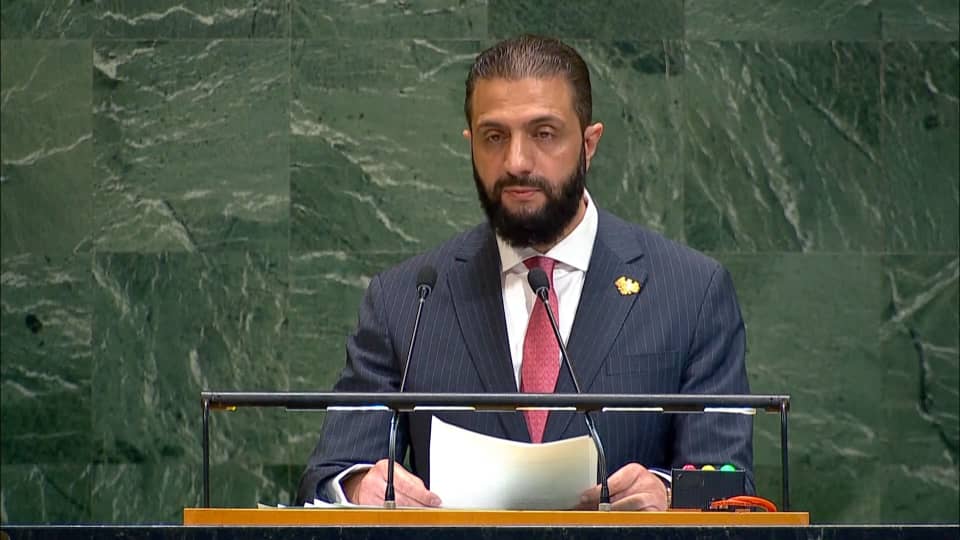By Eniola Amadu
Syria’s President Ahmad al-Sharaa has addressed the United Nations General Assembly in New York, marking the first time in nearly 60 years that a Syrian head of state has spoken at the world body.
His appearance was broadcast on giant screens across Syrian cities, where crowds waved national flags to witness the historic moment.
In his speech, al-Sharaa said his country was “reclaiming its rightful place among the nations of the world” after decades of dictatorship, war, and repression.
He becomes the first Syrian leader to speak at the UN since Noureddine Attasi in 1967, shortly after Damascus lost the Golan Heights to Israel in the Arab-Israeli war.
The country’s political landscape changed dramatically last December when Bashar al-Assad was ousted in a sudden insurgent offensive led by al-Sharaa.
Assad’s removal ended more than five decades of family rule, beginning in 1970 with a coup that aligned Damascus with the Soviet Union.
Al-Sharaa used the UN platform to criticise Israel, accusing it of threatening Syria since Assad’s fall and pursuing policies that endangered regional stability.
He said ongoing talks could lead to a security arrangement involving Israeli withdrawal and a return to the 1974 disengagement agreement.
However, Israeli Prime Minister Benjamin Netanyahu has publicly downplayed the likelihood of an imminent deal, though his office later confirmed negotiations were ongoing.
Al-Sharaa acknowledged that sectarian violence remained a challenge, with deadly outbreaks earlier this year and accusations that government-aligned gunmen committed abuses against Druze and Alawite communities.
He told delegates that fact-finding missions were already underway and pledged accountability for perpetrators.
The president also highlighted efforts to dismantle Syria’s role in the Captagon trade, a multi-billion-dollar narcotics industry that flourished under Assad to bypass sanctions.
He urged Western nations to lift sanctions imposed during the previous regime, saying they “shackle the Syrian people.”
Earlier this year, al-Sharaa secured partial relief when U.S. President Donald Trump waived several sanctions after a meeting in Saudi Arabia.
The most restrictive measures, enacted by the U.S. Congress in 2019, remain in place and would require congressional approval to remove.
Outside the UN, al-Sharaa said Syria would continue to pursue peace and reconstruction, adding: “Syria does not wish the pain it passed through for anyone” and voicing solidarity with Palestinians in Gaza amid the ongoing conflict.



